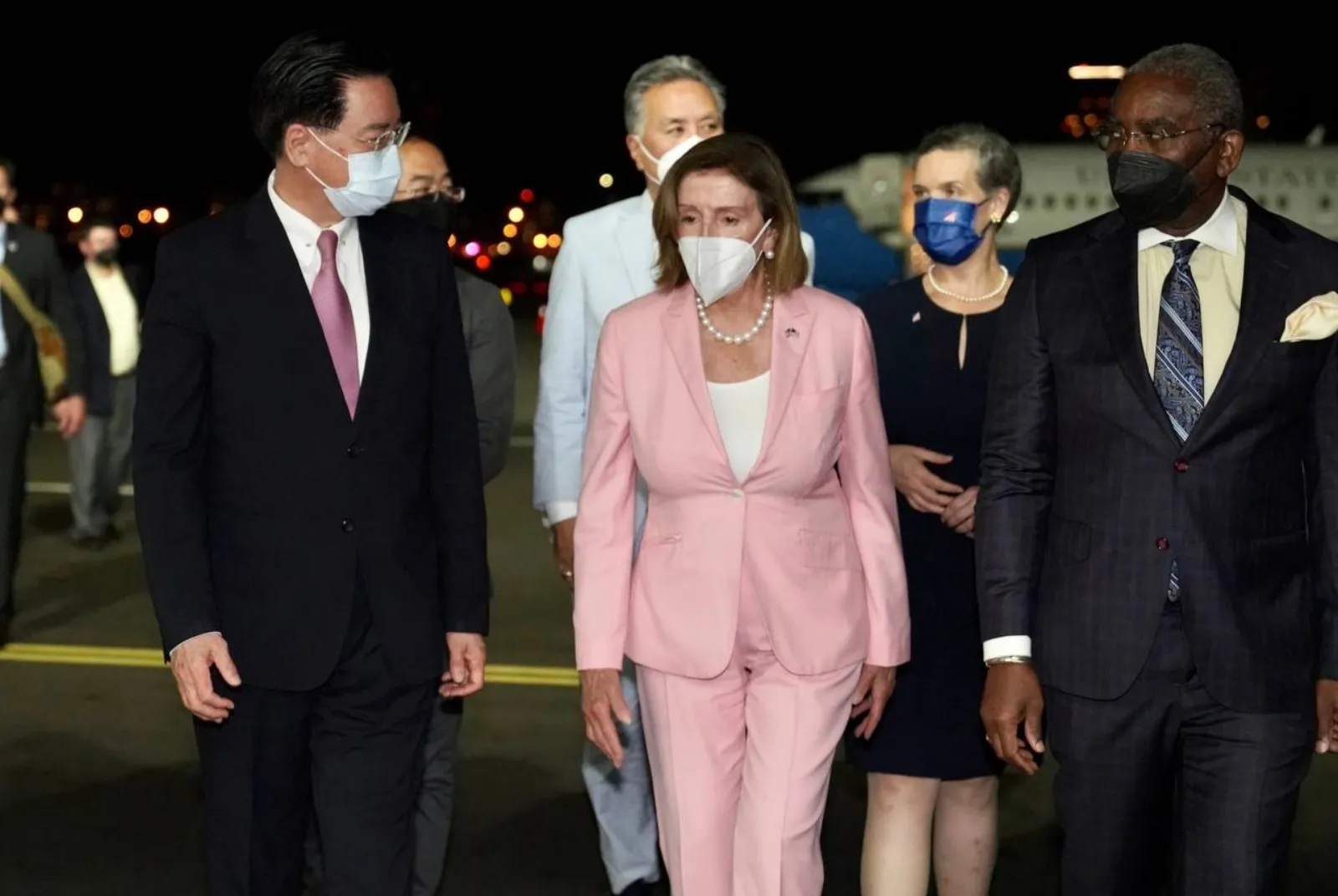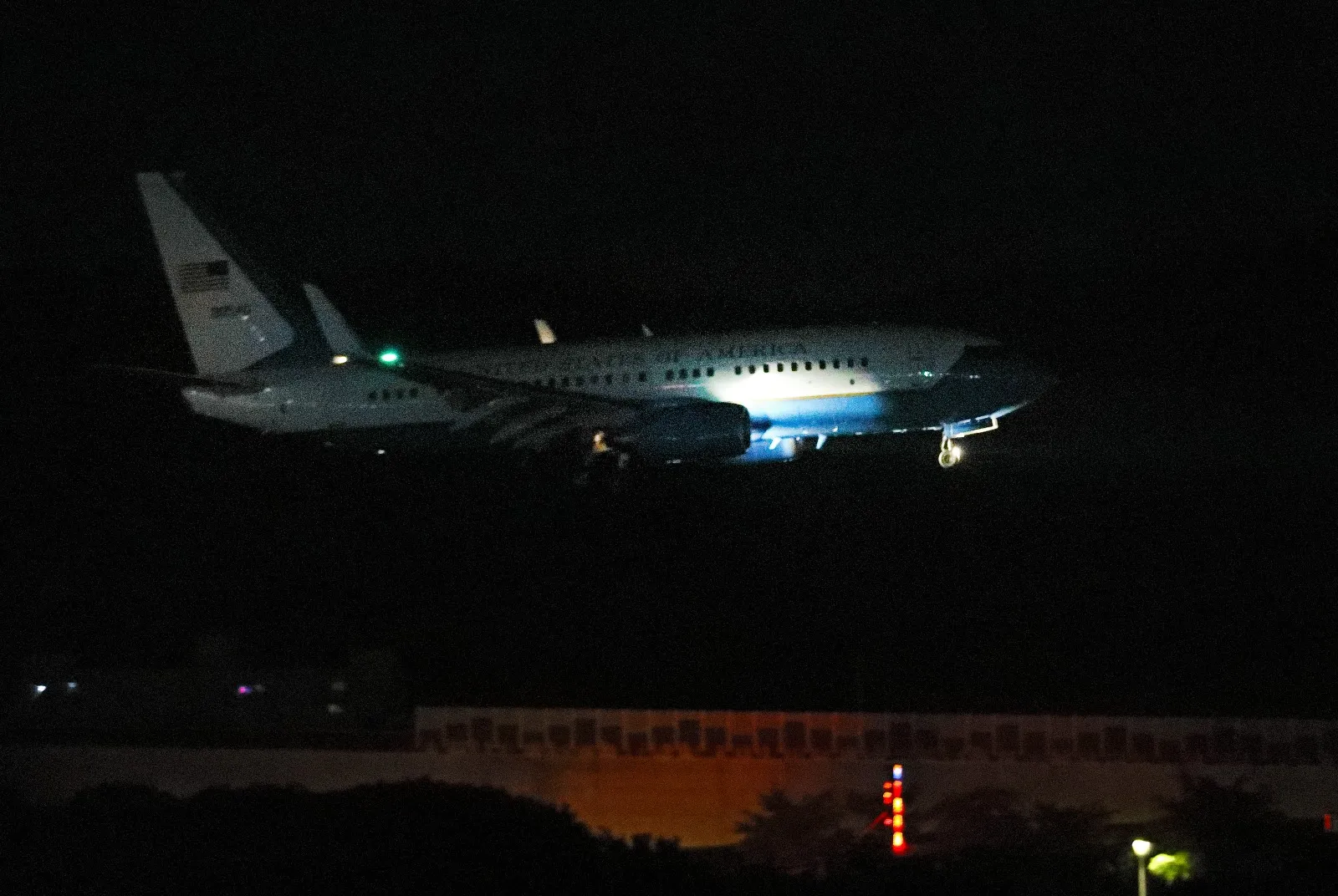Pelosi’s Taiwan visit was a US-made crisis

Source:Ministry of Foreign Affairs
Pelosi's visit to Taiwan was said to be the fourth Taiwan Strait crisis since 1949, and it was ironically triggered by the United States. What is really alarming is that it may not be the last.
Views
Pelosi’s Taiwan visit was a US-made crisis
By Shuren Kooweb only
“On the Ministry of Defense's order, the armed forces must be on high alert and therefore all visits are cancelled.” On the morning of August 2, visitors scheduled to visit an air force base the next day received this message on their cell phones.
Because the U.S. House Speaker Nancy Pelosi was scheduled to arrive in Taiwan that evening for a visit, People’s Liberation Army jets have been spotted in the southwest corner of Taiwan's Air Defense Identification Zone or the centerline of the strait almost daily. Taiwan's Defense Ministry had been on alert since last week.
As a stark contrast to Taiwan's collective shrug over the issue, the political and diplomatic circles in the US are bickering over whether Pelosi should visit or not, and China's tough response has made global headlines.
Center for Strategic and International Studies, a U.S. think tank, even announced its plan to hold a symposium discussing “a fourth Taiwan Strait crisis”.
U.S. Think Tank: The Fourth Taiwan Strait Crisis
Other U.S. Speakers, Congressmen or Secretaries have visited Taiwan in the past, but this one caused more of an uproar than ever before. The Biden administration is faced with a dilemma between "making a strong stand against China" and "managing the U.S.-China conflict.
For Taiwan, whether the U.S. wants to make a gesture or manage the conflict, Taiwan will be the victim to bear the pressure and consequences. A controversy like Pelosi's Taiwan visit will not be the last.
Beijing reacted strongly because of Pelosi's status.
The Speaker of the House of Representatives is the representative of the legislative branch of Congress. If the president is unable to carry out his duties, the Speaker of the House is the second in line of succession after the vice president.
In 1997, then-Speaker of the U.S. House of Representatives Newt Gingrich (R-GA) led a delegation to Taiwan. However, Gingrich was Republican and not in the same party as the Clinton administration, so Gingrich could not represent the White House's position at the time.
This time, Pelosi and Biden belong to the same party.
"Pelosi is in the same party as Biden, and for that reason, Chinese officials may believe that she shares the position of the White House,"
said David Sacks, a senior researcher at the Foreign Relations Association, a U.S. think tank.
In addition, Gingrich's Taiwan visit came a year after the Taiwan Strait missile crisis of 1996. The crisis was preceded by Beijing's stepping on Washington's red line, which led to two U.S. naval vessels patrolling the Taiwan Strait during his visit.
But today, things are drastically different.
Beijing's sense of insecurity
Pelosi's visit to Taiwan comes at a time of growing tensions between the United States and China. In Beijing's eyes, the US has been challenging Beijing's bottom line on Taiwan since the Trump administration.
Late last year, Assistant Secretary of Defense for Indo-Pacific Security Affairs Ely Ratner testified before a Senate Foreign Affairs Committee hearing that “Taiwan’s security is so important to the United States. As you know, Taiwan is located at a critical node within the first island chain, anchoring a network of U.S. allies and partners”
Never before has a senior U.S. official made such a clear statement. "Ratner is making it clear that Taiwan should be considered a strategic asset of the United States and must be kept separate from Beijing," said Michael Swaine, director of the Quincy Institute's East Asia Program and a prominent China expert.
More recently, Biden has said three times in public that the United States would defend Taiwan militarily if China invaded the country by force.

(Source: Chien-tong Wang)
Biden administration: No Change in China Policy
Nevertheless, the U.S. government officials have continued to emphasize on various occasions over the last six months that U.S. policy on Taiwan has not changed.
During a speech at George Washington University in Washington, D.C., in May, Blinken reiterated that U.S.-Taiwan relations are based on the Taiwan Relations Act, the Six Assurances to Taiwan, and the U.S.-China Tripartite Statement, and that the one-China policy has not changed. "Our policy has not changed. What has changed is China's growing threat to Taiwan," he highlighted.
The U.S. media reported that Biden, the White House National Security Council and the Defense Department all communicated privately with Pelosi, explaining the potential risks involved.
Many scholars have analyzed that if Biden were to scrub Pelosi's visit to Taiwan or if Pelosi were to back out, Biden and the Democrats would be labeled as weak, allowing Beijing to decide what American politicians can and cannot do.
A former senior national security official pointed out that the Democratic Party's midterm elections are not looking promising, and Pelosi is likely to leave her position as speaker soon.
"If Pelosi were to cancel her visit to Taiwan, it would give Beijing a taste of what's to come, and Taiwan would be under more threat from Beijing,"
said David Sacks, a senior fellow at the Council on Foreign Relations who has recently argued for a change in U.S. policy toward Taiwan to one of strategic clarity.
However, he also acknowledges that if Pelosi visits Taiwan, Beijing may be "forced" to react aggressively, which could lead to a crisis in the Taiwan Strait.
In other words, whether Pelosi visits or not, Taiwan is the loser.
Whether the U.S. wants to show its anti-China stance or to contain the U.S.-China conflict, it is Taiwan that will suffer the consequences and pressure in the end.
Pelosi's visit not really meaningful
Sacks said the U.S. government should reconsider its strategies and avoid making statements and actions that could lead to conflict, in order to meaningfully increase Taiwan's threat of resistance and capriciousness. He added that senior U.S. officials should visit Taiwan when there is a good reason to do so, such as trade talks or public health cooperation, or when they think it is necessary to send a signal to Beijing to avoid a crisis.
In addition, U.S. officials should avoid making symbolic visits to Taiwan just for the sake of it.
"By this standard, Pelosi's visit to Taiwan is ill-informed," Sacks said, adding that Taiwan is unlikely to gain anything concrete from the visit, and that the pressure of China's strong reaction will largely be borne by Taiwan.
On the contrary, if Pelosi wants to support Taiwan, she should promote legislation in Congress that favors arms sales to Taiwan and the Taiwan-U.S. trade agreement: "To help prepare Taiwan for future crises, these concrete measures will be more meaningful than symbolic gestures.
How is Xi Jinping supposed to respond to an insignificant visit to Taiwan by a U.S. dignitary?
August 1st happens to be the day the Chinese People's Liberation Army (PLA) began its military exercises. This year, it coincides with Pelosi's visit to Asia.
According to a former senior national security official, the Chinese Communist Party is extremely pragmatic. Before the 20th National Congress in Beijing later this year, stability is the most crucial thing. The former official predicted that Pelosi, being a veteran politician, will not talk about anything concrete."
Bonnie Glaser, director of the Asia Program at the German Marshall Fund, a Washington think tank, also tweeted that the likelihood of war or serious conflict is low, but China's demonstration of power and determination through a series of military, economic and diplomatic actions cannot be ignored, and it will likely seek to punish Taiwan in various ways.
"I increasingly think this is not going to be a one-day crisis. Buckle your seat belts, tightly." she warned.
For Taiwan, the "U.S.-made" Taiwan Strait crisis has proven to be a new pressure cooker that's the product of growing polarization of U.S. domestic politics, from which Taiwan cannot seem to escape.






